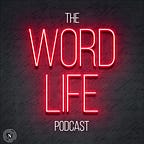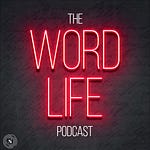In this episode of Word.Life, Donney is in conversation with revolutionary poet, essayist, activist and scholar, Amoja ‘MoMan’ Sumler. They discuss his poem “The Key to Hitting”, systemic abuse and the literal violence that has plagued Black Americans for generations.
I became involved in the game of slam poetry at the top of the 21st-century after a couple of years of performing poems at open mics in my hometown of Baton Rouge. I intentionally used the word ‘game’ instead of genre when referring to slam poetry, because that is what it is, a literary game. Since 1986 poets of varying backgrounds, identities and walks of life have competed in this performance sport in every setting imaginable from bars to coffee houses to galleries to university student centers to wherever an audience would come willing to gather and hear wordsmiths spill their soul and have their art be judged by everyday folks. In the nearly four decades since the inception of this game, the persistent motto has always been that the points are not the point, the poetry is the point, and in no place has that idea ever rang more true than at national and regional slam tournaments.
Attending, and especially competing in a national or regional poetry slam tournament is like stepping into a counter-cultural society. For anywhere from 3 days to a full week depending on the tournament, poets of every ethnicity, gender, orientation and socioeconomic background imaginable have the opportunity to have their voices centered among their peers and poetry enthusiasts. It is almost as if all of the silencing and marginalizing that many of its participants receive in the outside world is temporarily suspended and the voices of the disenfranchised are the MOST valuable ones in existence. This is not to suggest that the world of poetry slam is completely void of societal ills that are common to everyday life. A large part of the culture is the idea that it considers itself to be a truly democratic space and that does not always allow for its participants to be vetted along the lines of morality. Slam, as an open platform, has been both a lighthouse for its participants to express themselves in a world that has often attempted to mute their cries, as well as an unfortunate hiding place for souls that were as tortured as they were talented.
Over the past few decades, some of this generation’s most prolific writers have emerged from the world of poetry slam. Some of the country’s best-selling authors, revered essayists, dynamic musicians, and decorated educators were at one time or another, strategizing in the back of a slam venue at a tournament, hoping to put poems on stage that would gain the respect of their peers, and allow them the opportunity to hoist up a trophy. At its essence, slam gives its participants real-time responses to their work from randomly selected judges that score pieces based on the merit of the writing and performance. But beyond the judges, and the points, and the strategizing, is the community that is formed between members of marginalized populations who find camaraderie in the art of sharing and listening.
I competed in poetry slams at the national level for over a decade and met some of the most interesting personalities I’ve ever known. And that’s an understatement. What I mean is, I’ve met poets who became extended family. Poets who have shared positive affirmations with me, said prayers on my behalf, cheered on my accomplishments outside of dimly lit performance spaces, and stood heel-to-heel with me in fighting for justice in the real world when there was no applause to be gained.
One such poet is my guest on this episode of Word.Life, a veteran by the name of Amoja ‘MoMan’ Sumler whose radical leftist poetry and activism has been a staple in slam circles for over two decades. Amoja Sumler is a poet, essayist, chef, podcast host and author of the poetry collection, Fables, Foibles and Other ‘Merican Sins which is described as a gothic noir that gives readers “an unflinching look at a world of white menace.” MoMan is a legend in the southern poetry community and someone who absolutely abides by the politics he writes about in his work.
We talk about a piece from Fables, Foibles and Other ‘Merican Sins titled “The Key to Hitting” which speaks uses the symbolism of Thomas Jefferson’s abuse of those he enslaved as a metaphor for abuse Black Americans endure at the hands of the system, the abuse we extol on each other, and the lineage of violence in the South that haunts Black life to this very day.











